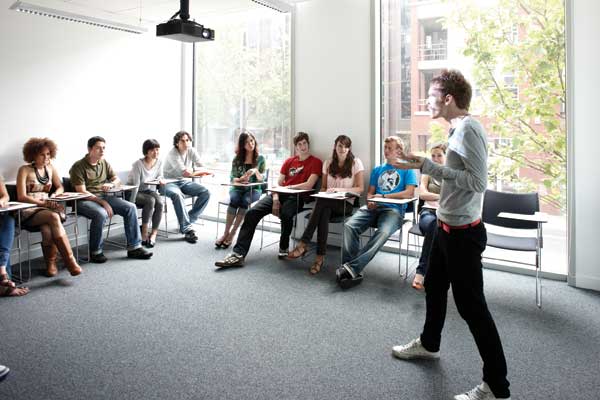For too long, high school classrooms across the world have shied away from topics that seemed too controversial, topics that could generate potential conflict, topics that forced uncomfortable conversations and introspections. Politics, it seems, is to stay strictly outside the walls of the classroom, and the closest we ever get to it is a dry account in our Civics textbooks. This widespread belief stems from a popular misperception of politics – as a violent, corrupt game played only by political parties, something children should be kept far away from. What most adults, parents, and teachers alike, seem to forget is that politics isn’t a distant phenomenon happening in the nation’s parliament. Politics is present in our everyday lives – the fare of the cab to work, the water supply to our homes, the taxes we pay every year, and yes, the status of our citizenship. Issues that are labelled ‘political’ or ‘partisan’ are very often important issues of human rights and social justice. If education is meant to empower our children with knowledge, why are we afraid to have these important conversations?
The pressure on educators to remain ‘neutral’ comes from a deep-rooted fear of offending parents, school administration, or the government with “propaganda”. Research by Michigan State University shows that even beyond this pressure, teachers feel unequipped to initiate discussions about such issues without passing value judgements, or pitting students against each other. The impact that this vacuum in political education has on the development of students is crippling. Students are denied a space of healthy discussion and argument, and subsequently a chance to develop an independent opinion for themselves. Their only source of information remains dinner table and drawing room conversations – usually one-sided beliefs from authority figures, which are easy to adopt without questioning. Additionally, in times when the safety and stability of certain students’ lives are in doubt, avoiding discussion of certain subjects (be it violence against religious minorities, racial discrimination, or gun violence) is itself a form of exclusion.
Avoiding discussing politics in formal education more often than not produces young adults who are unaware or misinformed about issues happening around them. Having never been taught why problems that don’t affect them personally still ought to be valued, these adults consequently struggle with empathy and inclusion. Having never been taught how to respectfully disagree with an opinion, they are defensive and vitriolic in their arguments. While we might produce renowned engineers and budding entrepreneurs, we aren’t producing sensitive, independently thinking individuals.
According to data from the Election Commission of India, 45 million young people have been added to the electoral rolls since 2014, expanding it by 5%. In 2020, the youth make up 34% of India’s population. The impact of the youth on politics is only increasing, and so are the perils of having a misinformed opinion, or just as bad, no opinion at all.
How then, can educators facilitate a platform for healthy debate, without becoming divisive and exclusive? The way forward could begin by anchoring classroom discussions in a framework of concepts like justice and equality. This would involve making justice-oriented pedagogical choices: through revising and updating curriculum to make it more responsive to the current political climate as well as the increased exposure children already have through media, by cultivating respect for differing opinions and sensitivity towards vulnerable minorities through empathy-building exercises like stakeholder debates, through stimulating independent thinking and critical analysis of information and other such methods. The shift towards a proactive, engaged approach to politics will not happen overnight and requires equipping teachers with these skills, along with other skills of conflict moderation and resolution, before equipping students with information. A foundational education in politics does not mandate the teacher to espouse political beliefs. It merely requires them to ask students to think harder about the realities of our society; realities that will only benefit from the active engagement of young minds.
